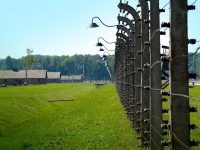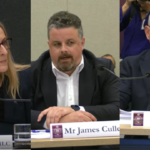New Prisons To Be Built Around The Nation

It’s no secret that many of Australia’s prisons are filled to the bursting point.
In recent times, desperate politicians have been forced to consider unorthodox means of detaining inmates, with the NSW government announcing earlier this year that it would be constructing portable prison cells as a quick-fix solution to the problem.
The government has also hinted that it may re-open disused prisons, or even build new ones, but there are concerns that this will be an expensive exercise – even if private companies are contracted to both build and run the prisons.
But now it seems that the government has no other choice. In April, there were around 11,500 prisoners in NSW alone, despite facilities only being able to accommodate 10,800.
In a bid to address the rising prison population, the NSW government recently announced that it would be constructing new prison facilities around the state.
Desperate Times Call For Desperate Measures
Prisons have felt the strain of new laws which make it harder for defendants to get bail – which has led to more and more people being locked up while they await trial or sentence (a period known as ‘remand’).
On top of this, tougher sentencing laws have seen more people imprisoned for longer as part of the government’s promise to get tough on crime.
Naturally, these measures have meant that prisons have seen a sharp increase in the number of inmates. Parts of Sydney’s Long Bay prison are reportedly operating at 70% overcapacity, while Parklea prison is housing 51% more prisoners than it should. Facilities have been forced to take unusual measures, including cramming three inmates into cells designed for only one.
While such measures offer a temporary solution, they are not without flaws. A report released by the NSW Inspector of Custodial Services suggests that incidents of self-harm have ‘skyrocketed’ and that medical and mental health services are inadequate, leading to the physical and psychological health of inmates worsening.
A shortage of support staff also means that inmates have little access to programs that teach them work and life skills, and help them to reintegrate into society. Many inmates are on waiting lists for several months or are even refused access to programs that help them to break the cycle of crime. This shortage is counterproductive to their efforts towards rehabilitation and the long term interests of the community.
In NSW, programs aimed at assisting alcohol dependence are only able to accommodate for 51% of those deemed eligible, while aggression and violence programs are meeting just 27% of needs.
On top of this, inmates who are bound to complete special parole programs are unable to be released on parole simply because the programs are overbooked, with long waiting lists for a number of programs. For those eligible for parole to be detained in circumstances beyond their control is plainly unfair.
To add to the burden, rising tensions amongst inmates due to the cramped conditions are putting prison staff at risk; increasing the likelihood of violence. These risks are exacerbated by the fact that many prisoners are being kept in ‘lockdown’ in their cells due to staff shortages – meaning that they cannot be appropriately supervised outside their cells.
In some instances, inmates are spending just three hours per day outside of their cells – way behind the national average of 10 hours.
The New Prisons
The NSW government has pledged $1.2 billion towards the prison system in 2015-2016.
A new prison will be built in Grafton, in north-eastern New South Wales, which is expected to accommodate 600 prisoners. Grafton had previously been the site of a medium-security prison, but the facility was closed in 2012. According to the Minister for Justice and Police, the new prison ‘will be built to contemporary standards, making it safe and secure for staff and inmates.’
The Minister also noted that it will be built as part of a ‘public-private partnership,’ meaning that companies responsible for building and maintaining prisons such as Serco will profit from the endeavour.
The existing Parklea Correctional Centre will also be expanded to accommodate an additional 400 inmates by 2018. At present, the facility is used to house inmates on remand, as well as minimum and maximum security male prisoners.
NSW is not the only state to allocate funding towards the prison system. The Victorian government has promised to build a new medium-security prison west of Melbourne. Named the Rivendell Prison Complex, the facility is expected to house 1000 inmates.
And in Western Australia, $232 million is being spent to replace the existing Eastern Goldfields Regional Prison. The revamp will provide an additional 250 beds to ease demand for cells in the region. Notably, the facility ‘will be designed to engage Aboriginal prisoners in culturally-appropriate programs and courses, and for the first time in the region, have a separate and specific focus on the needs of female prisoners.’
While the new prisons may reduce some of the appalling injustices currently faced by inmates due to overcrowding, many have questioned the government’s focus on ‘law and order’ over other non-punitive measures such as prevention and rehabilitation.
The negative impact that incarceration has upon an inmate’s physical and mental wellbeing has been long documented. Many studies have found that imprisoning people does nothing to reduce crime, and that exposing younger inmates to ‘hardened criminals’ and making it more difficult to reintegrate into society following their release can indeed increase their likelihood of reoffending.
With Australian politicians intent on imprisoning people at an increasing rate, one must question whether we really want to follow in the footsteps of America, where incarceration is often the norm rather than the exception.






